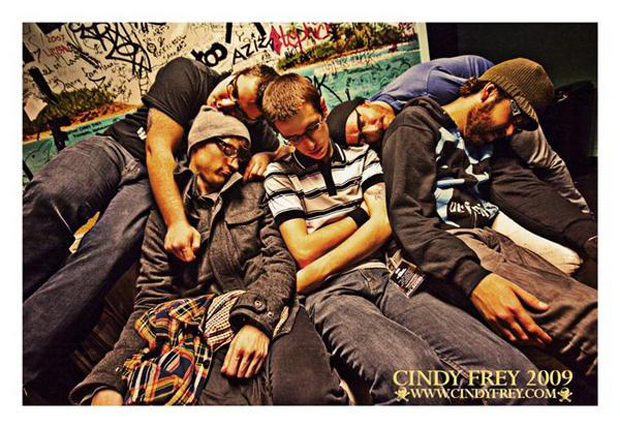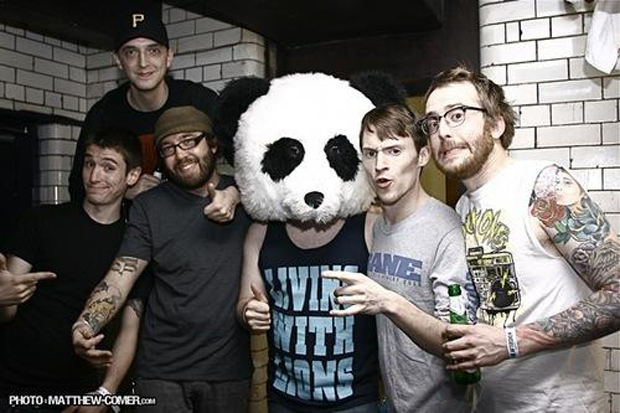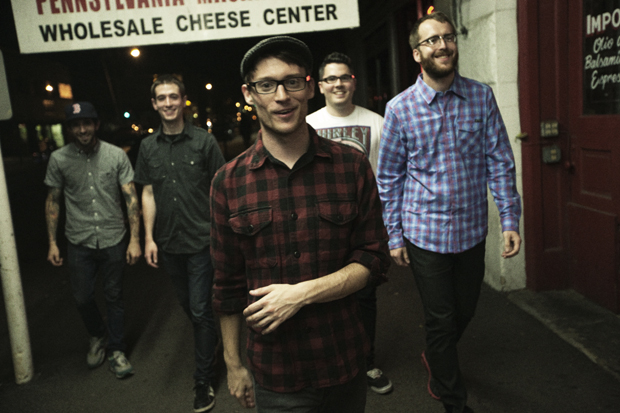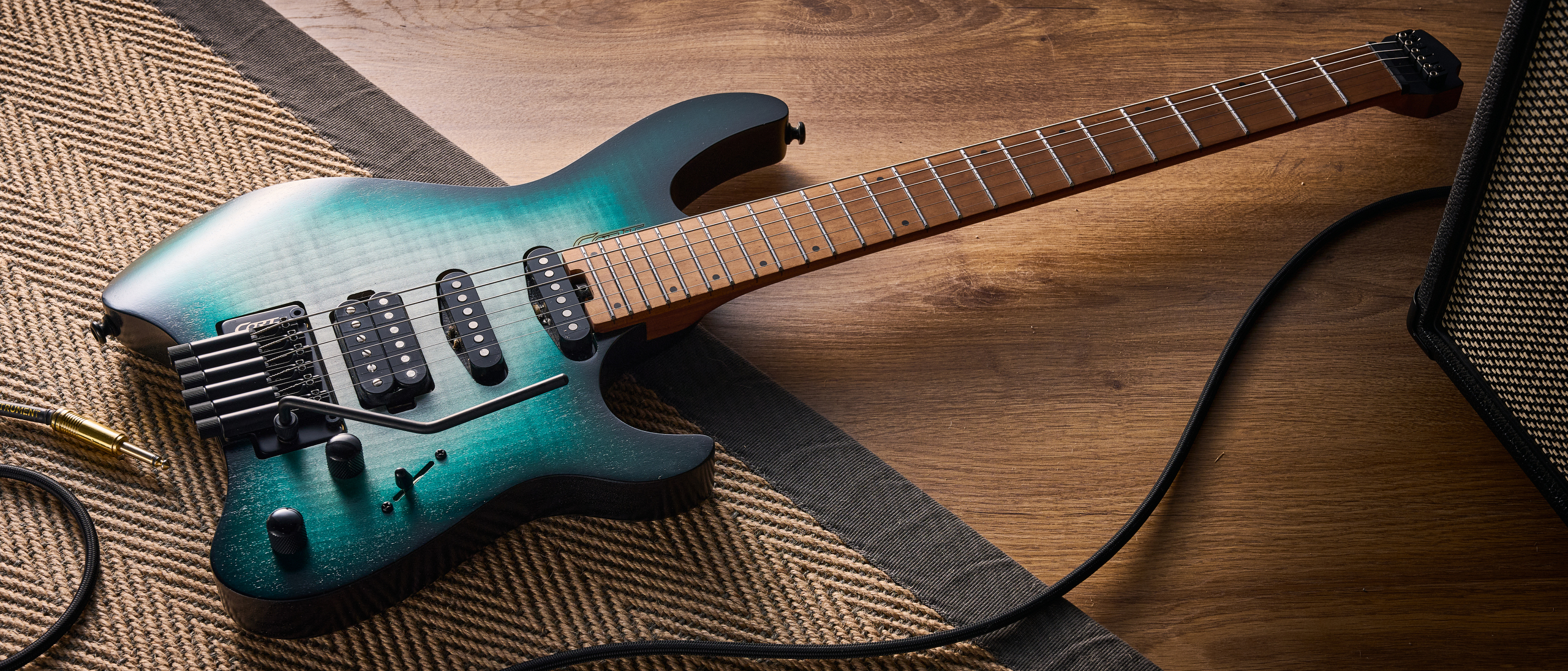Interview: Chris Browne and Nate Morris of Polar Bear Club
All the latest guitar news, interviews, lessons, reviews, deals and more, direct to your inbox!
You are now subscribed
Your newsletter sign-up was successful
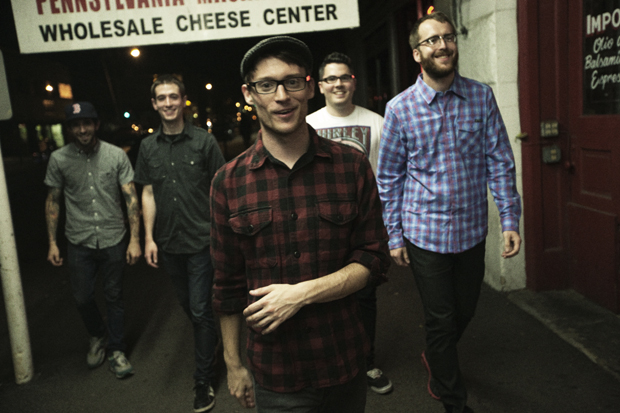
Obsessing over guitar tracks in the studio can be tempting for a lot of bands. Polar Bear Club guitarist and self-described perfectionist Chris Browne is no stranger to this search for the sublime.
“You can get in that really sterile environment, and you put those headphones on and look at the computer screen, and you focus more on the click or whether or not a note sounds a little out of tune,” Browne says. “If you just let go, rock out and have a good time playing music, it’s going to come out better.”
After recording their third full-length album and working with a new producer, Polar Bear Club guitarists Browne and Nate Morris talk about relaxing in the studio, roughing it in Europe and letting go of obsessive tendencies.
GUITAR WORLD: Polar Bear Club is getting ready to release its new album, Clash Battle Guilt Pride, in the fall. How did the two of you approach the album’s songwriting?
NATE MORRIS: Basically, Chris, Jimmy, who’s the singer, and I all write songs. We’ll each bring our song into practice, show it to the band, then everyone learns it, and we kind of take it apart as a band from there. We rearrange things and add our own stuff to it.
Did you each have specific roles in the process?
NM: No, I’d say it’s pretty different from song to song. Chris and I both do lead parts, we both do rhythm parts, and we know how to write songs together at this point. So if there’s a lead part that would be better for him, I’ll tell him to take it or vice-versa.
All the latest guitar news, interviews, lessons, reviews, deals and more, direct to your inbox!
Chris, you describe yourself as a bit of a perfectionist. How did this come into play in the studio?
CHRIS BROWNE: It can be both a good thing and a hindrance sometimes. I think this album was actually a learning experience in trying to shut down some of that perfectionism. Our producer, Brian McTernan, was a lot more involved than some of the other producers we’ve worked with in terms of songwriting. We worked a lot with trying to make things sound natural as opposed to robotically tight.
Is there anything you would change?
CB: There’s always something you hear back that maybe you wish you could’ve done better, but that’s the case with any project. As a whole, we’re all very happy with the album. I think it sounds great. We all did the best we could and put a whole lot of time and effort into it.
How has touring in Europe compared to touring in the United States?
CB: It can be a lot less convenient and a lot less comfortable at times. There are amenities that you just take for granted growing up in the States. The shows are great over here, and the kids are noticeably more enthusiastic and kind of more loyal over here. Once they start coming out to your shows, you see them over and over every time you come. They welcome you back and are just really excited that you’re there. There’s a more dedicated scene over here, but it’s maybe a little less comfortable, living-wise.
Has anything crazy happened so far?
CB: We’re only about three days in, but someone did try to do a human pyramid the other night. That was kind of crazy — you don’t see that too often.
How have you enjoyed returning to a headlining tour?
CB: I think we all prefer headlining. It’s just nice playing for kids who you know are there to see you and that appreciate the music you’re making. Support tours can be nice too, but it’s nice knowing that people care about your music.
Polar Bear Club tours pretty heavily. What gear can you not travel without?
NM: I would probably say a Marshall amp. I really like JCM 800s — the 2203s. That’s what I’ve played for like 10 years now, and I just fuckin’ love them. Even over here, where you have to rent gear sometimes, if you get one of those, they almost always sound great.
CB: I’m definitely not as attached to my guitar as Nate is to his Les Paul, so I would say my Tube Screamer. I love putting a little overdrive on top of the Marshall distortion. It adds a nice crunch to it — I always put a Tube Screamer on there. Lately, I’ve been using a Fujigen Telecaster with a Seymour Duncan Hot Rails for Tele in the bridge pickup. I absolutely love it. I highly recommend it to anyone looking for our kind of sound.
What guitarists did you look to for inspiration growing up?
NM: I’ve always enjoyed the guys who aren’t super-flashy, or can hit a certain number of notes per second, but every single note they play really resonates with you. David Lindley is one of my all-time favorite guitar players.
More currently, Stephen Carroll, who plays in The Weakerthans, is another lead guitar player I really like. Every note he hits, no matter how simple, sounds great. It’s about playing the notes that people want to hear and that feel good, not how fast you can play or how far you can bend a note. You can play two notes and have it be way more powerful than 20 notes.
CB: I’m a big fan of Mike Kinsella, actually. Our band doesn’t sound anything like him, but I really like his music. His playing is beautiful. I also like classic-rock guitarists like Jimmy Page and Steve Howe. My dad was way into classic rock when I was growing up, and that was sort of the impetus for my guitar style.
How do your respective approaches to the guitar compare?
NM: I think my approach to the guitar is much more about the rock ’n’ roll feeling and hitting chords hard, and I think Chris is much more precise. We both have really different approaches to the guitar, and I think they work really well together in this band.
CB: I think our styles are really complementary. They’re definitely different, but we can figure out a way to fuse them together. I come from a more angular, post-hardcore background. The music I grew up listening to was more riff-based than progression-based, and the guitar was more of the focus. Nate’s more of a smooth rock guitarist, and I’m more angular. It doesn’t always manifest itself that way in the songs, but that’s sort of the basis for where our songs come from.
What was it like working with producer Brian McTernan?
CB: It was great. He was a lot more hands on with the songwriting than any other producer we’ve worked with before. We had a full two weeks of preproduction before we tracked a single thing, and that allowed him to really understand the songs from our level. He was almost like our sixth member and a democratic leader in a way. He thinks about songs a lot differently than I do. It was a challenge and a learning experience, but we took some songs to some really different places than we ever have before, and when we go to craft songs in the future, we’ll have those tools.
What was the biggest lesson you learned while recording Clash Battle Guilt Pride?
NM: A big thing we both learned was to be a little more easygoing during the recording process and play the parts with passion and worry a little less about whether a note is a quarter step out of tune. I think that was a big thing with us, because some of the producers we’ve worked with in the past focused a lot more on that. It fit better with the way I like to write music.
CB: Sometimes it’s best to have the maximum amount of trust in your band mates and the producer you’re working with and just let go and not over think things so much. Don’t listen to something too hard and get obsessive over it. Do what feels right. It just reaffirmed that songwriting, recording, tracking and performing is all instinctual after a certain point. You have to feel it more than think about it.
